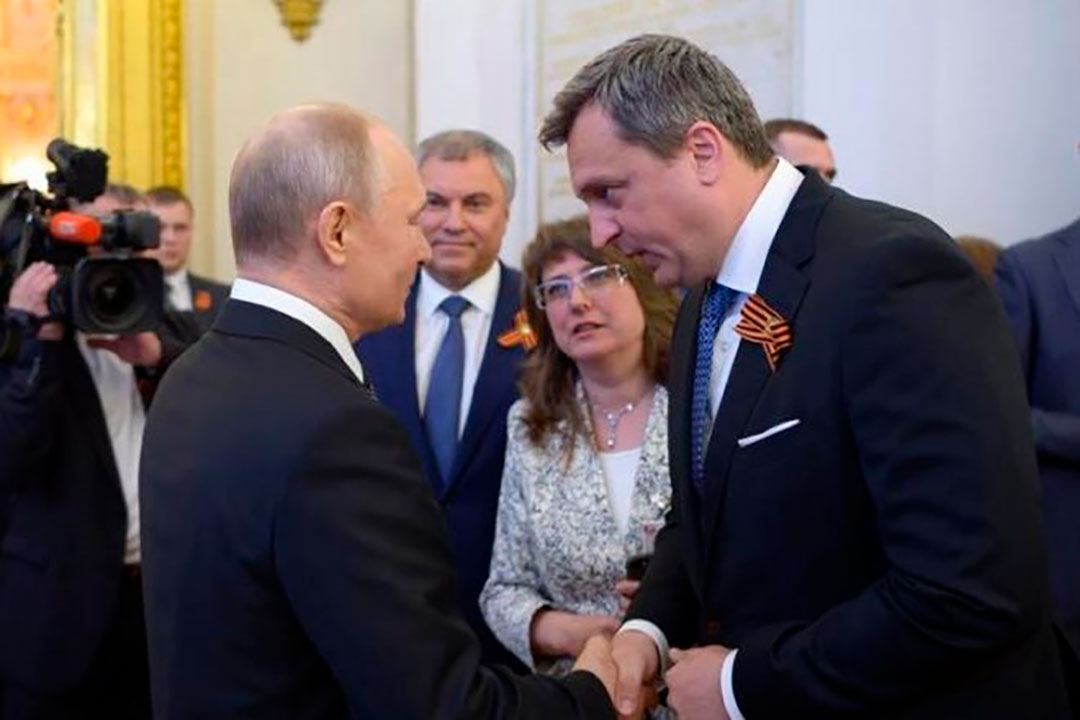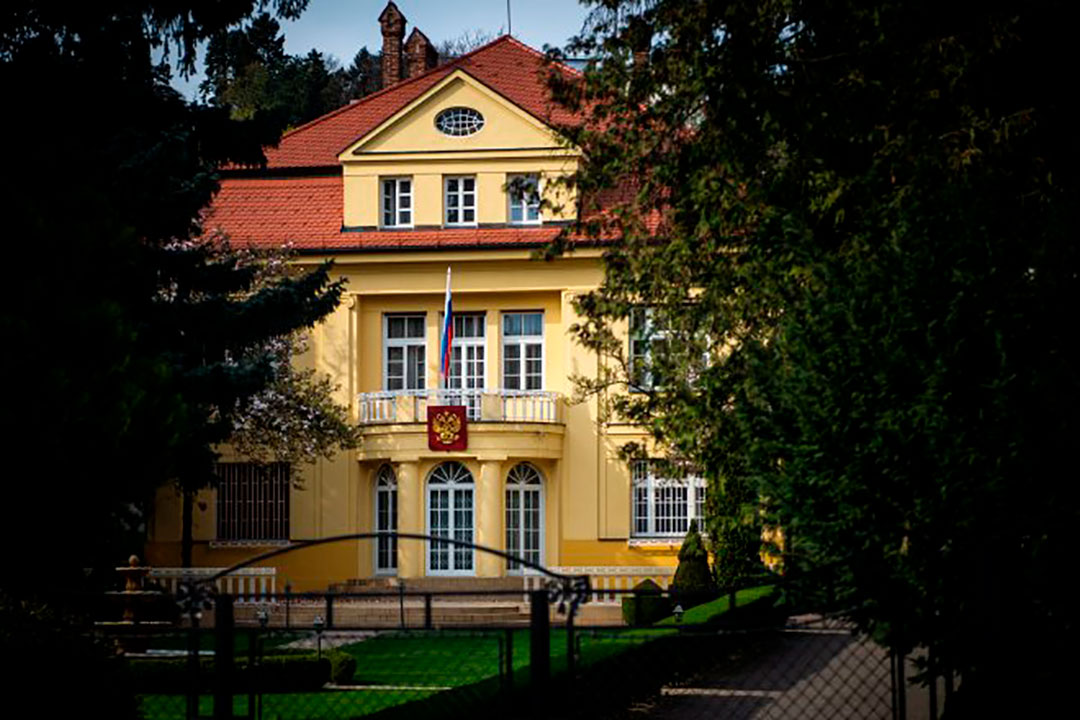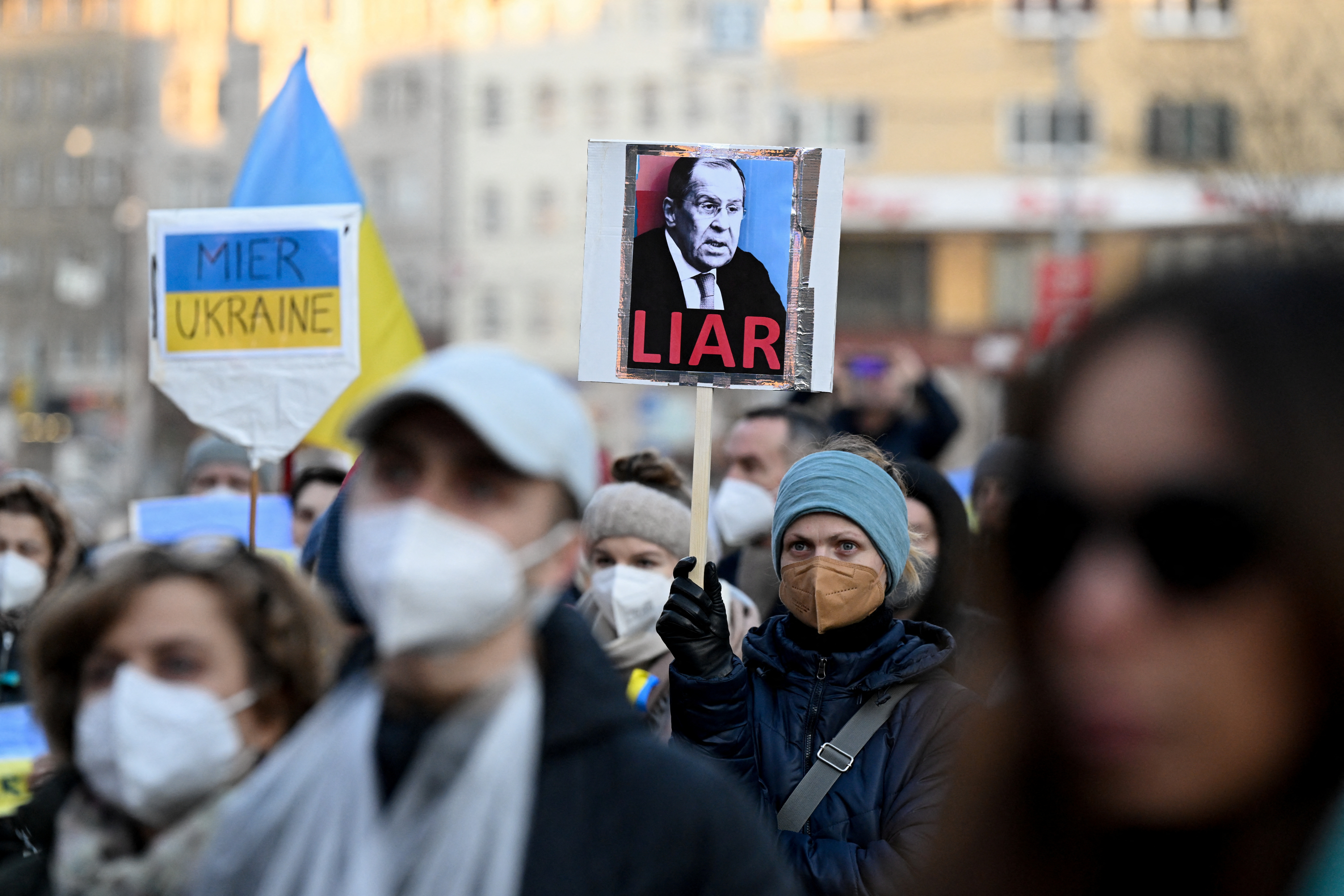
The Slovak Foreign Ministry reported on Monday that the government decided to expel three Russian diplomats accused of spying for Vladimir Putin's regime and has given them 72 hours to leave the country. In addition, security forces have arrested several individuals working for the Ministry of Defence and the Slovak Information Service (SIS) for their alleged involvement in the case.
Although their identities were not disclosed, it is known that among those arrested are an Army colonel, a member of the SIS, and a person associated with the Main News website. According to the newspaper Dennik N, all of them had been bribed by a Russian diplomat. The Slovak Government indicated that the diplomats in question have violated the Vienna Convention on Diplomatic Relations.
The Ministry of Foreign Affairs also asked the Russian Embassy in the country to carry out its activities “in accordance with the Convention”, to which the two parties have acceded in order to prevent “activities that violate” such relations.
“The Ministry of Foreign Affairs of the Slovak Republic strongly urges the Embassy of the Russian Federation in the Slovak Republic to ensure that its representatives carry out their activities in accordance with the Vienna Convention on Diplomatic Relations, to which both countries have committed themselves in the past, and to refrain from further activities that contravene the Convention in question, other provisions of international law and diplomatic practices,” Slovak diplomacy said in a statement.
The Russian Government, for its part, has assured that it will respond to the expulsion of its diplomats.
Dennik N reported that Slovak military intelligence intercepted suspicious information about the espionage activities of Russian diplomats.

“We can confirm that Military Intelligence has provided key intelligence information, including evidentiary material, to law enforcement authorities in the case. Under the current leadership of the Ministry of Defence, the Military Intelligence Service will continue to carry out tasks aimed at the defense and security of the Slovak Republic and its citizens,” wrote the ministry's spokeswoman, Martina KovaKakaščíková.
This disintegration of Putin's espionage network on Slovak soil comes at a time of maximum pressure from a large part of the international community on the Russian regime by invasion of Ukraine. After the start of the Russian military incursion, the Slovak National Council passed a law that allows to tighten the repression of agents of disinformation who spread Russian propaganda in the country.
In these two weeks since the Russian invasion began, the Slovak State has already closed three disinformation websites because of its links with the Kremlin. On March 2, the authorities suspended the operations of the Main News and Army Magazine portals, while last week they did the same with the Main Daily.
Defense Minister Jaroslav Narepeatedly said that the State has proof that the Main News portal is funded by the Russian embassy. On Monday night, however, the editor-in-chief of that media outlet, Róbert Sopko, stated that they were distancing themselves from the activities of the “occasional correspondent who allegedly cooperated with the Russian intelligence agency.”
“No one in the editorial office knew about this activity of yours. His contributions were not related to Russia, he had no influence on the functioning of the Main News. Therefore, we ask that Main News not be dragged or associated with the private activities of this occasional correspondent,” Sopko added, without revealing the identity of the journalist in question.
Since 2018 Dennik N has been reporting on Main News' alleged connections to Russian propaganda. According to that media outlet, the articles were written by Yevgeny Paltsev, who signed as Eugen Rusnak. In his publications, he endorsed the occupation of eastern Ukraine by Russian troops, and disseminated false accounts of the poisoning of former Russian agent Sergei Skripal in the United Kingdom and the shooting down of the Malaysian plane on Ukrainian territory in 2014.
According to information held by Slovak intelligence, Paltsev held several meetings at the Russian news agency Sputnik, which was part of the Kremlin-funded media group Rossiya Segodnya.

The last time Slovakia expelled three Russian spies was last year, as part of the Vrbětice case, after the Czech Republic accused Russian intelligence services of sabotaging two arsenals in 2014 to prevent the weapons they stored from reaching Ukraine, whose government has been facing rebels since 2014 pro-Russian separatists in the Donbas region. Estonia, Latvia and Lithuania were other European Union (EU) partners who then stood in solidarity with Prague, which called for a collective response from the continental bloc and NATO to Russian sabotage.
However, Slovakia was one of the few European countries that did not join the broad coalition of UK allies that expelled Russian diplomats in 2018 after two intelligence agents poisoned the former spy Skripal on British soil. The expulsion of Russian diplomats after the attack on Skripal was blocked four years ago by Andrej Danko, president of the Slovak National Socialist Party and then president of the National Council.
Danko is an official who has always been aligned with the Kremlin. A few days ago, after the start of the Russian invasion, he argued that “Ukraine has been divided for eight years, so it is not possible to clearly assess this situation as an attack by Russia.”
According to Dennik N, Slovak intelligence has strong information and evidence that Moscow regards Slovakia as a safe base for its operations, with special interest in military technology and energy. An SIS report also warns that Russian agents are attempting to infiltrate government offices and local security forces.
For this reason, it is not surprising to experts that the number of Russian diplomats in the country is disproportionately high. Estimates indicate that in 2020 there were up to 45 diplomats, while the Ministry of Foreign Affairs records another 30 embassies and consulates officials who are not on the diplomatic list.
This case of diplomats expelled from Slovakia represents a blow to Putin's extensive espionage network, especially at a time when he is facing a huge wave of sanctions by the West, while his troops face heavy resistance from Ukrainian troops. A much greater resistance than the leader of the Kremlin himself would have imagined.

In late February, the United States expelled Russia's second-largest diplomat in Washington in retaliation for a similar action by Russia against the second American diplomat in Moscow.
The suspension was not related to the Russian invasion of Ukraine, but is part of a protracted dispute between Washington and Moscow over embassy personnel. However, it came at a time when tensions between the two capitals peaked after the Cold War over Ukraine.
The US Government expelled Minister Counsellor Sergey Trepelkov, the number two of the Russian diplomatic mission in the United States, from the country, under Ambassador Anatoly Antonov. By mid-February, Russia had expelled deputy head of the US mission Bart Gorman from Moscow.
Also, the expulsion ordered today by Bratislava comes weeks after the Slovak Parliament approved a cooperation agreement allowing the United States to increase its military presence in the country, an agreement that comes amid Russia's invasion of Ukraine.
Putin's networks around the world have been in place for a long time. They present themselves as cultural or commercial attachés and weave contacts at all levels. However, the mission of each of them in the countries to which they are sent is only one: to collect information and to infiltrate high levels of government.
Keep reading:
Últimas Noticias
Debanhi Escobar: they secured the motel where she was found lifeless in a cistern

The oldest person in the world died at the age of 119

Macabre find in CDMX: they left a body bagged and tied in a taxi
The eagles of America will face Manchester City in a duel of legends. Here are the details

Why is it good to bring dogs out to know the world when they are puppies




